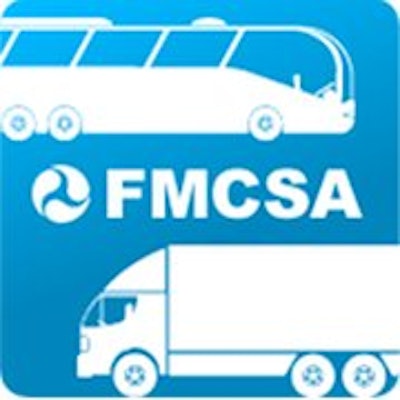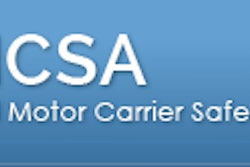
The American Trucking Associations called on the Federal Motor Carrier Safety Administration (FMCSA) to accelerate the agency's efforts to integrate more risk-based assessments into its enforcement programs in light of a report made public by the Department of Transportation.
"We appreciate the Department and FMCSA finally making public the report and recommendations the independent review team submitted to the Secretary of Transportation last July," said ATA President and CEO Bill Graves. "It is clear that, since receiving it last summer, FMCSA has been taking some positive steps to respond accordingly. It's also clear that much more remains to be done."
The report was issued by an independent review team appointed by the Secretary of Transportation in response to two specific National Transportation Safety Board recommendations. During investigations of four serious commercial motor vehicle crashes, NTSB found that FMCSA had failed to identify significant safety issues during prior audits of the motor carriers involved in the crashes.
"ATA is particularly pleased that the Independent Review Team highlighted the critical need for FMCSA to better align compliance and enforcement programs with the risks that actually cause crashes," said ATA Executive Vice President and Chief of Advocacy Dave Osiecki. "A number of stakeholders, including the Government Accountability Office, have observed the agency is often focused on compliance issues that do not bear a relationship to crash risk."
The report presents a range of recommendations relating to FMCSA's Compliance, Safety, Accountability program, more efficient use of field enforcement resources, ways to make on-site compliance reviews more effective and measures to incent carrier-based, non-regulatory safety initiatives. For instance, the report points out CSA could be more effective if behaviors directly and immediately connected to crash risk were separated from "form and manner" compliance issues.
In particular the report discussed how, during on-site audits, investigators sometimes ignore violations that may relate to crash risk in favor of paperwork issues that are easier to document and more readily available.
"In the interest of preventing CMV crashes, FMCSA should make a greater commitment to be "risk-based" and reform its compliance and enforcement programs accordingly," Osiecki said. "And, we're pleased that FMCSA is moving forward with a new partnership program aimed at recognizing trucking fleets whose safety policies and programs go beyond regulatory compliance. Both of these efforts ensure the most efficient use of resources and are in the shared interests of government, the industry and other highway users."

















